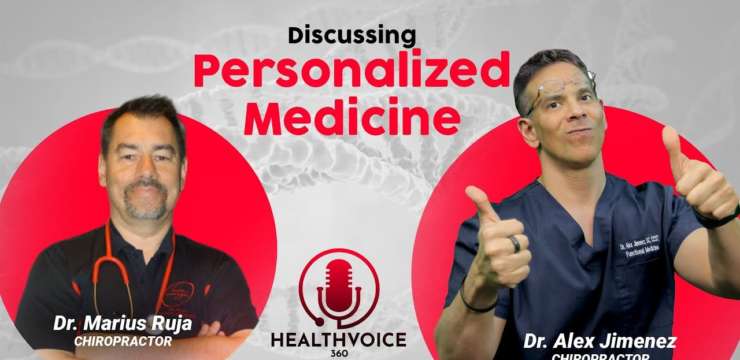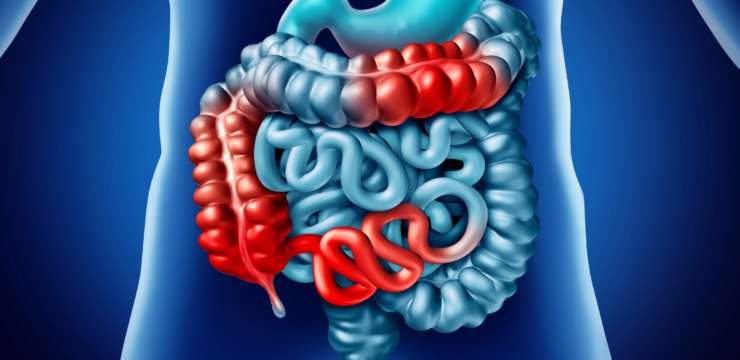Aging is a natural part of life and it can’t be stopped. Or at least, that’s what we used to think. Researchers at Intervene Immune,…


Aging is a natural part of life and it can’t be stopped. Or at least, that’s what we used to think. Researchers at Intervene Immune,…

Research studies have demonstrated the fundamental role of nutrition in health and longevity. The standard American diet, which is generally high in fat and sugar,…

PODCAST: Dr. Alex Jimenez and Kenna Vaughn introduce Sonja Schoonenberg to discuss epigenetics and nutrition. Our diet can affect our gene expression. Therefore, eating unhealthy…

PODCAST: Dr. Alex Jimenez, Kenna Vaughn, and Lizette Ortiz discuss the importance of nutrition and diet for overall health and wellness as well as how…

PODCAST: Dr. Alex Jimenez, a chiropractor in El Paso, and Kenna Vaughn, a health coach in El Paso, TX, introduce Taylor Lyle, a sports dietitian…

As previously discussed, our genes play a significant role in energy expenditure, appetite, and fat metabolism. Our genetics determine our susceptibility to obesity when exposed to an unfavorable environment. Additionally, we are also able to see how individuals will react to specific diets and exercises. We are able to use genetic testing to see a genetic profile and create a cutting-edge, scientifically backed, and effective weight loss plan for each patient. As we know, food consumption impacts our health throughout our entire life. With an unhealthy diet, turning on and off genetic risk factors, it becomes unhealthy and is a major risk factor for chronic health conditions. Nutrition-related conditions are often encountered and identified by chiropractors where musculoskeletal and inflammation is the origin.

PODCAST: Dr. Alex Jimenez, Kenna Vaughn, Lizette Ortiz, and Daniel “Danny” Alvarado discuss nutrition and fitness during these times. During quarantine, people have become more…

PODCAST: Dr. Alex Jimenez and Dr. Marius Ruja discuss the importance of personalized medicine genetics and micronutrients for overall health and wellness. Following a proper…

What is a disease? Over the years the definition of disease has evolved and changed as medicine became more advanced. Years ago, people used to think a disease was an actual entity or thing that had entered the body and was lying hidden causing disruptions. Now, we know that a disease is actually a disordered function. To properly treat the disease we need a treatment that is based upon the principle of restoring disordered functions to order.

– If you have enjoyed this video and/or we have helped you in any way please feel free to subscribe and share us. Thank You…

Dr Alex Jimenez & ( Talent) Discuss topics and issues …

Disc bulge and disc herniation are some of the most common conditions that can affect the spine of both young and middle-aged patients. It is…

Crohn’s disease is an inflammatory bowel disease (IBD). IBDs are health issues that affect the digestive tract by causing inflammation that lasts longer than an…

Our brain is constantly working to help us make decisions, speak, read, and perform many other important functions. It’s also responsible for several involuntary processes,…

One of the most important nutrients in the body is Co-Enzyme Q10 (CoQ10). CoQ10 is involved in the electron transport chain as well as playing a role in endothelial function. As of late, the medical literature has shown that statin medications like Lipitor, Crestor, and Zecor shut down the production of CoQ10. CoQ10 is needed for many biochemical reactions throughout the body. However, one of the most important factors to realize is that when CoQ10 is depleted in the body we have adverse reactions like the LDL cholesterol becoming oxidized. This event unleashes further destruction to the body and results in the LDL cholesterol drilling holes in the arterial wall, causing extreme inflammation. Inflammation is directly linked to chronic health conditions as well as an increased risk of heart attacks and stroke.

Folate is a B vitamin naturally found in a variety of foods. The body can’t produce folate, that’s why it’s important to get it from…

Fructose is one of the main components of added sugar. It is a simple type of sugar that makes up about 50 percent of table…